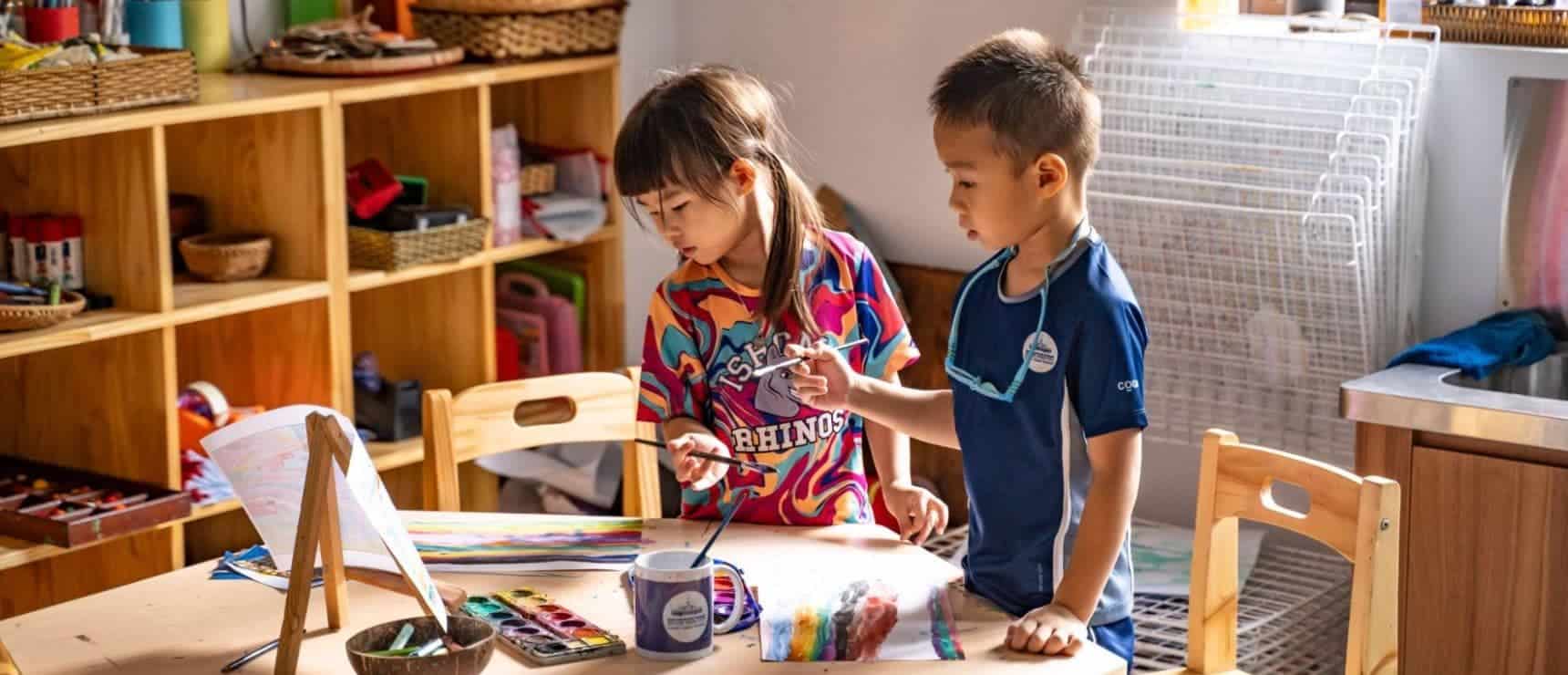In traditional education, subjects like Math, English, Geography, and History often stand as isolated islands. Students may gain in-depth knowledge of each subject, but they may struggle to see how these pieces fit together in the complex tapestry of real life. The International Baccalaureate (IB) recognized this disconnect and sought to create a curriculum that fosters critical thinking, creativity, and a holistic understanding of the world.
The IB’s Primary Years Program (PYP) is designed to empower students to become lifelong learners by connecting seemingly disparate subjects and encouraging inquiry-based learning. As the first IB World school in Ho Chi Minh City, ISHCMC is committed to preparing students for a world that demands adaptability, problem-solving, and a global perspective. We offer three IB programs – the Primary Years Program (PYP) for students aged 3 – 10 years of age, the Middle Years Program (MYP) for Grades 6 – 10, and the Diploma Program (DP) for Grades 11, and 12.
The importance of big ideas
At ISHCMC, we believe that students are active participants in their own learning journey. From a young age, our PYP curriculum fosters curiosity, critical thinking, and a love for discovery. Unlike traditional teacher-led models, the PYP empowers students to explore, research, and construct their own understanding.
The cornerstone of the PYP is the Units of Inquiry (UOI), which are thematic explorations that connect across different subjects. These units delve into six essential transdisciplinary themes, which transcend subject borders:
- Who We Are
- Where We Are in Place and Time
- How We Express Ourselves
- How We Organize Ourselves
- How the World Works
- Sharing the Planet
Through these themes, students develop a holistic perspective and learn to apply their knowledge to real-world challenges. Let’s take “How we express ourselves” as an example. This theme is an “inquiry into the ways in which we discover and express ideas, feeling, nature, culture, beliefs, and values; the ways in which we reflect on, extend and enjoy our creativity; our appreciation of the aesthetic.” Our youngest students in Early Explorers might be investigating how we express ourselves through celebrations. Grade 3 might approach this theme, by exploring structures and how we express ourselves through design and aesthetics. While Grade 5 might look at the power and influence of the media. These concepts can then cover a range of subjects. A grade 3 investigation into structures can incorporate an artistic element with design, a scientific and engineering perspective looking into the properties of materials, a mathematic perspective looking at shape, form, and measurements, and an element of social studies as they explore landmarks around the world.
Balancing Big Ideas and Core Skills
While the PYP emphasizes transdisciplinary learning, it also recognizes the importance of foundational subject knowledge. The six subject strands—Language, Mathematics, Science, Arts, Social Studies, and Physical, Social, and Personal Education (PSPE)—provide a strong framework for developing essential skills and concepts.
When appropriate, these subjects are seamlessly integrated into the transdisciplinary themes. However, we also understand that certain skills, like basic numeracy or literacy, are necessary prerequisites for deeper learning and so these will also be taught as stand-alone lessons. For example, a young child needs to understand how a ruler works before they can measure the growth of a plant in their classroom. By providing a solid foundation in these core subjects, we equip our students to apply their knowledge more effectively in real-world contexts.
Nurturing a Culture of Inquiry
From the earliest days, we foster a culture of curiosity and inquiry. Children are natural explorers, and our role is to provide a safe and supportive environment where they can ask questions, investigate their interests, and draw their own conclusions.
We encourage students to use the 5W+H questions (What, where, why, when, who, how?) to guide their inquiries. Through research, exploration, and experimentation, they learn to gather information, analyze data, and form evidence-based conclusions. Mistakes are an integral part of this process, and we celebrate them as opportunities for growth and learning. By embracing risk-taking and overcoming challenges, our students develop resilience and a lifelong passion for learning.
How the PYP goes beyond just imparting facts and figures
Being a risk-taker and an inquirer are not simply byproducts of the PYP. They are 2 of the 10 attributes that make up the IB learner profile. Unlike other curriculums, the IB goes beyond just imparting knowledge and actually teaches children how to be balanced global citizens, helping to create a better and more peaceful world. The curriculum shapes them into balanced, caring, empathetic, principled, and respectful young people.
In addition to these character traits, the PYP also emphasizes the development of essential skills through the “Approaches to Learning” (ATL) framework. These skills, including communication, thinking, self-management, and research, are invaluable life skills that will help them throughout their future careers and in their personal lives too.
Local and global context
At ISHCMC, we are proud to host over 60+ nationalities across 2 campuses. Our community is truly diverse and internationally minded. The IB’s global perspective aligns perfectly with our school’s mission, as it encourages students to explore their own cultures and develop empathy for others.
We believe in building upon students’ prior knowledge, regardless of their previous educational background. It doesn’t matter whether a child is coming from another IB school in Singapore, or transferring from a British School based in Warsaw, we will help them adapt and build on the knowledge they have. In addition to our student body from around the world, our teachers not only hail from all corners of the globe, they’ve also lived all around the world too – bringing with them years of expertise from the best education systems around the world and applying them to the context of our IB school based in Ho Chi Minh City, Vietnam.

